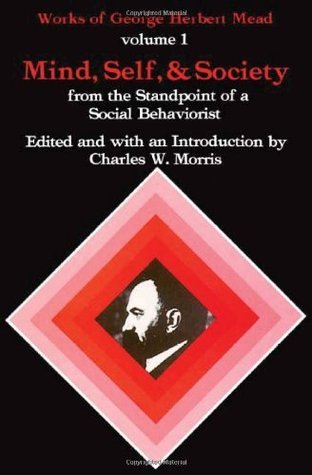What do you think?
Rate this book


440 pages, Paperback
First published December 1, 1934
Mind arises in the social process only when that process as a whole enters into, or is present in, the experience of any one of the given individuals involved in that process. When this occurs the individual becomes self-conscious and has a mind; he becomes aware of his relations to that process as a whole, and to the other individuals participating in it with him; he becomes aware of that process as modified by the reactions and interactions of the individuals—including himself—who are carrying it on.